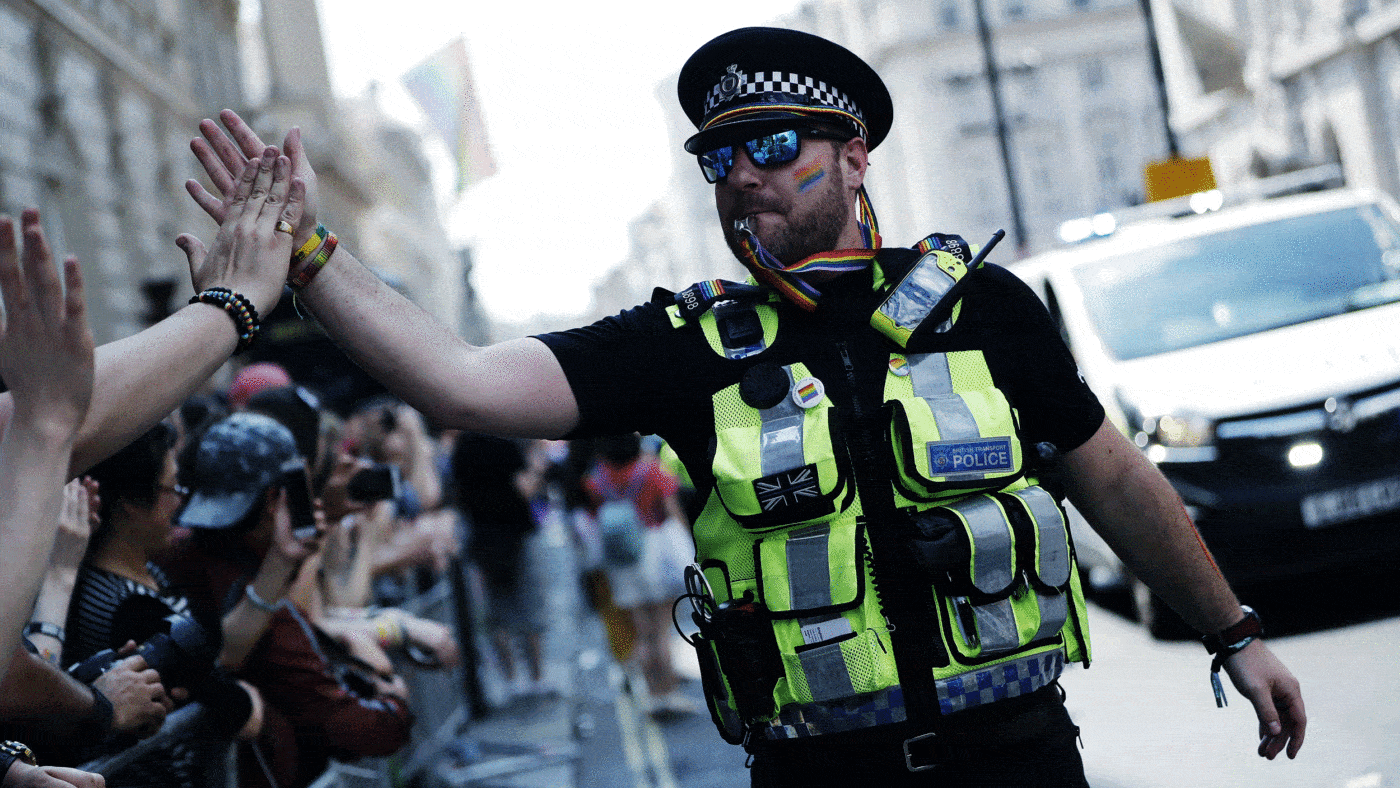‘I used to play in the park at night. If you went to play in the park at night now, you wouldn’t come back, would you?’
That was the damning verdict of Paul from The Wirral when we asked about local community spaces. He wasn’t alone. Laura from Sheffield told us she wouldn’t dare take the kids to the ‘little park round the corner because it’s covered in glass and graffiti’. While Sarah from the supposedly leafy Cotswolds told us that the parks were ‘dangerous places’ where children ‘couldn’t safely go and play’.
That anti-social behaviour is making so many local parks – the public spaces that are supposed to sit at the heart of our communities – into no-go areas, is just one of the damning findings from More in Common’s year-long study into attitudes to crime and policing.
In that study, we found that right across the country there was not only worry, anxiety and fear at rising crime and anti-social behaviour, but also palpable anger and frustration that it seemed like the police had given up trying to tackle it, which was in turn only egging criminals on.
Asked how good a job the police were doing at being visible in their local area, only 25% thought they were. Just 26% agreed that the police were doing a good job at tackling anti-social behaviour and only 24% said the same about tackling crime more generally.
Of those who had been a recent victim of crime, most said that they were dissatisfied with the police’s response – and hearing their stories in focus groups it wasn’t hard to understand why. Most felt that they had been fobbed off with little more than a crime reference number, while others told us that the police didn’t even bother looking at relevant CCTV footage. Perhaps most depressingly, those in more deprived communities told us that they often felt the police’s response would be different if they were in a wealthy area.
That growing sense that the police are failing to fulfil their basic responsibilities to tackle crime and anti-social behaviour, combined with a series of high-profile scandals, has led to a severe erosion of faith in the force. Barely half (52%) of the public now say they trust the police. That lack of confidence makes officers’ jobs – which depend on community support, consent and cooperation – even harder.
But the public’s answer to these problems is more policing, not less. Just 16% of the public think that we should defund the police – and that view is concentrated in the mainly urban, well-educated Progressive Activist segment of the population. Indeed, the most popular option for tackling crime is ‘more visible policing’. The public know that having more bobbies on the beat works – it makes communities feel safer, deters crime and makes catching criminals easier.
That’s why voters want to see the police come out from behind their desks and get back onto the streets. There is also no doubt that while it’s hugely important that the police understand and respect the communities they serve, the public worry that the focus on diversity and inclusion has gone too far – and are now more than twice as likely as not to think that the police are more focused on being woke than solving crimes.
Beyond better policing, the public support a mixed approach to tackling rising crime. Longer and harsher sentences for criminals (particularly repeat offenders) tops the list, but so too does more support for mental health services and tackling rough sleeping, to take pressure off the police and divert people away from the criminal justice system.
Similarly, there is no doubt the public want parents to step up in disciplining their children, and for them to face consequences for not doing so. They also want young people who commit vandalism to be made to clean it up on the spot, while also lamenting the lack of opportunities clubs, activities and support to keep young people away from crime.
In perma-crisis Britain it is tempting to dismiss the failure to tackle crime and anti-social behaviour as just another item on the ever-growing ‘to-do list’. But the consequences of that failure are eating away at society and social solidarity like a cancer. Fear of criminals forces the public out of our common and community spaces and behind ever higher fences.
And, of course, it is the most disadvantaged areas that suffer the most. We heard in focus groups, particularly in the Red Wall, that while people supported the Government’s drive to reverse the neglect their communities had experienced, there was no point in making their area look nice because it would just be vandalised in a couple of weeks. That’s why, if the Government is serious about levelling up, it must have a laser-like focus on tackling anti-social behaviour.
Doing so will require the cooperation of local authorities, schools, parents and community groups, and a combination of measures targeted at prevention, deterrence and punishment. But above all, for the public, that job starts and, for the most part, ends with the police. The public want to see that the police have once again got their priorities right and start to put themselves back at the heart of community life.
Click here to subscribe to our daily briefing – the best pieces from CapX and across the web.
CapX depends on the generosity of its readers. If you value what we do, please consider making a donation.


